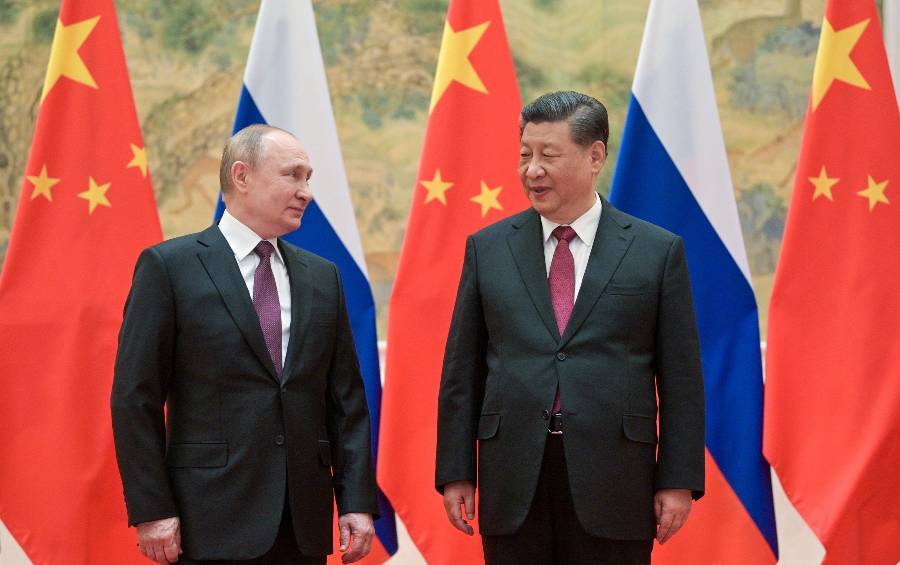China and Russia have in one voice made it clear that they are opposed to any attempt to impose political issues on the agenda of multilateral fora, indicating that they could together block efforts by the G7 countries in particular to raise the Ukraine issue at the G20.
In the joint statement issued in Moscow after the meeting between Chinese President Xi Jinping and his Russian counterpart Vladimir Putin, the two sides said they both “firmly condemn the politicisation of multilateral platforms and the attempts of certain countries to insert irrelevant issues on the agenda of multilateral platforms and dilute the primary tasks of relevant mechanisms”.
There was no specific mention of G20 but the formulation does not leave much scope for doubt, considering this was the stance Russia and China took at the two ministerials of the grouping over the past month in India.
Russian foreign minister Sergey Lavrov had publicly pointed out in the Raisina Dialogue — where he spoke a day after the G20 foreign ministers meeting — that this grouping is a forum for discussing finance and macro-economic policies.
“Entire G20 was only about what to do with Ukraine and have it in the declaration. I asked India, Indonesia and those who have chaired such meetings earlier whether G20 ever reflected in those declarations the situation in Iraq, Syria or Yogoslavia.”’ Lavrov went on to respond by saying, “Nobody was giving a damn about anything other than finances and macro-economic policies for which G20 was formed.”
As a result of the opposition from Russia and China to including the paragraphs on Ukraine from the G20 Bali Declaration, the finance and foreign ministers meetings of the G20 could not come out with a joint statement.
Instead, a chair’s Summary and Outcome Document were issued after both ministerials. Again, without mentioning the Quad, the Russia-China joint statement appeared to criticise the grouping of India, the US, Japan and Australia.
“The two sides oppose patching together a closed and exclusive group structure in the Asia-Pacific region, creating group politics and camp confrontation. The two sides pointed out that the US adheres to the Cold War mentality and pursues the“Indo-Pacific Strategy”, which has a negative impact on peace and stability in the region.
China and Russia are committed to building an equal, open, and inclusive Asia-Pacific security system that does not target third countries, so as to maintain regional peace, stability, and prosperity.
Both countries have separately criticised the Quad and AUKUS — a security alliance comprising Australia, the US and the UK aimed at creating a framework for Washington and London to support Canberra in acquiring a fleet of nuclear-powered submarines to counter China — but this is the first time they have synchronised their similar positions in a joint statement.










